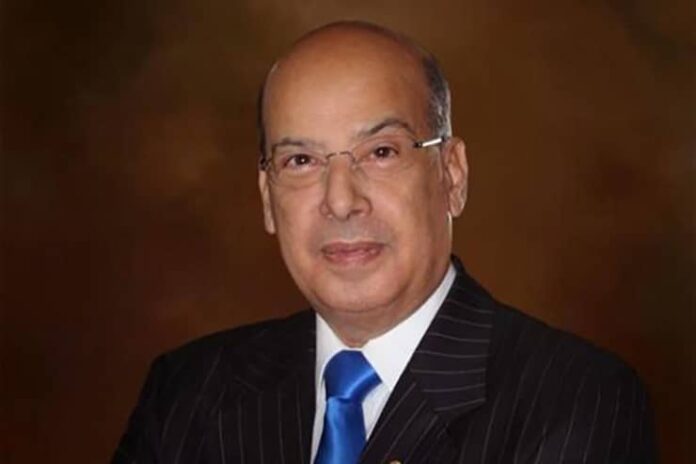When it occurred, in the early 1970s in Guyana, it caused a serious period of apprehension. In what was seen as an abuse of power, a politician in Guyana slapped Rickey Singh, an intrepid journalist, because he was displeased with the content of a newspaper report. The incident was a watershed moment, and the resulting concern occupied politicians, journalists and the general public. Did this slap signal the end of free media and the beginning of political dictation or even tyranny?
The question reverberated around the region. Media organisations, liberal academics, and politicians were all alarmed. At that moment, Rickey Singh embodied the aspirations and rights of freedom of speech. For his part, the politician represented the coercive force of political power, suggesting that violent measures, instantly and unilaterally applied, would silence criticism in any form. Fortunately, the overwhelming response of every sector of Caribbean society was revulsion at the incident. In that moment, any worse explicit abuse of power retreated into the shadows, not to fade but to assume less vulgar forms. And legitimate media freedom breathed a sigh of relief.
This conflict between freedom of the press and political power existed before the stinging slap. It continues to be manifest today in many societies, including those that claim to be bastions of democracy. The problem has not disappeared, but in Guyana in the 1970s, a line was drawn, however faintly. The slap did not seal his lips—it magnified his message. It unveiled the fragile veneer of power impervious to principle and showcased the unyielding spirit of a journalist who refused to bow.
The region owed Rickey Singh a debt of gratitude for his courage in standing up for freedom, even, quite literally, in the face of abuse.
In that spirit, I reproduce below the eulogy I delivered at Rickey Singh’s funeral on Wednesday, July 16, 2025, at the People’s Cathedral in Barbados.
I am honoured to join you today to celebrate the life of Rickey Singh—a man whose pen bore the weight of our region’s hopes, whose voice dared to confront power, and whose spirit embodied the Caribbean’s pursuit of unity, justice, and true inclusion.
Rickey wielded truth as both a shield and a sword. In our small states, he reminded us that words based in truth could confront wrong and demand justice.
His fearless journalism came at a cost: his self-exile from his native Guyana, threats of deportation in Trinidad, and the withdrawal of his work permit in Barbados. All of these forced painful separations from his beloved wife, Dolly, and from their children, whom he supported with unwavering devotion. His love for family and duty to them remained unshaken, a testament to his enduring integrity.
Yet, hardship only steeled his resolve. Despite the indignities he endured—including the sting of a slap from a politician—Rickey never failed to be generous to the very leaders whose actions he criticised.
The question continues to haunt politics and journalism: Who was harmed by that slap? – the perpetrator and political power, or the victim and the right of free speech? One answer is that Rickey was upstanding in his conduct and outstanding in his quiet and dignified response. So much so that many leaders honoured him with their friendship and sought political differentiation by their association with him.
Since the birth of CARIFTA in 1968 and the signing of the Treaty of Chaguaramas in 1973, the dream of “One Caribbean” has moved too slowly. Institutions have been formed, and committees have met, yet unity remained elusive. Rickey would not accept timid progress.
Through incisive columns and commanding commentary, he held successive leaders accountable for the promise of regional integration, urging them to dismantle the invisible walls between our countries and see our destinies as interwoven. His unfaltering advocacy ensured that the dream of an integrated Caribbean stayed alive.
In his native Guyana, detractors sought to tarnish Rickey’s reputation, branding him “racist.” Nothing could be further from the truth. His lifelong devotion to his wife, Dolly, of African heritage, and his deep brotherhood with Hubert Williams—also of Guyanese African heritage—stood as living refutations of those slanders.
Rickey yearned for the day when politically manipulated racism in Guyana would yield to a one‑society nation, where every citizen stood equal in dignity and opportunity. His pen battled the bigotry of division, always summoning the people of his native country to benefit from their shared humanity.
I count Rickey among the people I respect most in my life. His ready smile and easy laughter were a balm, and his counsel a guiding light. He called on us to embody his principles: courage in the face of intimidation, integrity when capitulation would have been the easier path, and an unshakeable belief in social justice and the rights of all people.
Though Rickey’s voice was stilled on July 5, his words still resonate. His example will ignite the passions of younger generations. Leaders will remember his unyielding defence of right and rights and know that power divorced from principle is hollow.
And we, the peoples of this region, will hear his clarion call in the echoes of our minds: to bind ourselves closer, not by convenience, but by conviction; and that our strength lies in unity, justice, and dignity for all.
(The author is the Ambassador of Antigua and Barbuda to the United States and the OAS, and Dean of the OAS Ambassadors accredited to the OAS. Responses and previous commentaries:[www.sirronaldsanders.com](http://www.sirronaldsanders.com/))


